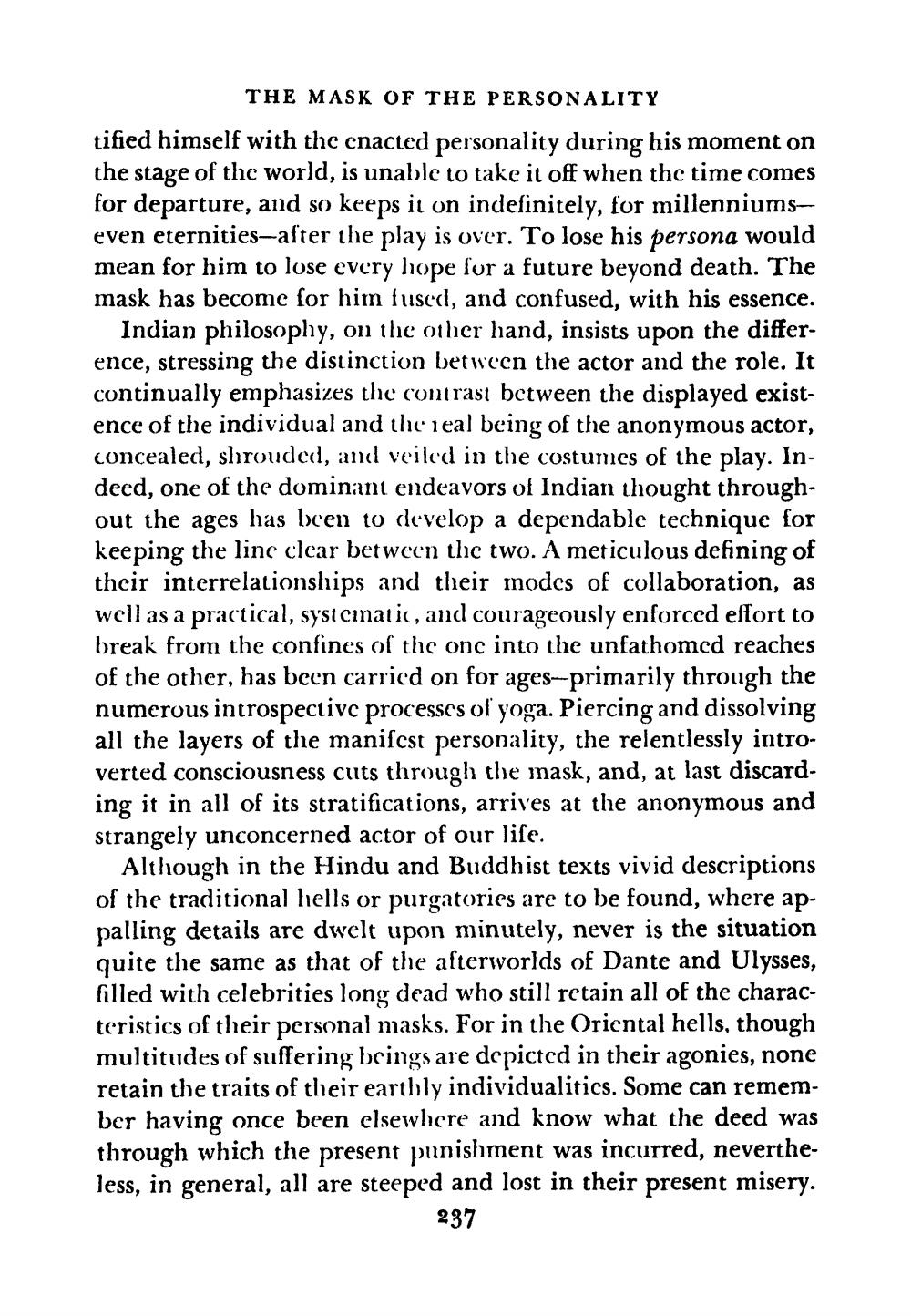________________
THE MASK OF THE PERSONALITY tified himself with the enacted personality during his moment on the stage of the world, is unable to take it off when the time comes for departure, and so keeps it on indefinitely, for millenniums, even eternities-after the play is over. To lose his persona would mean for him to lose every hope for a future beyond death. The mask has become for him fused, and confused, with his essence.
Indian philosophy, on the other hand, insists upon the difference, stressing the distinction between the actor and the role. It continually emphasizes the contrast between the displayed existence of the individual and the real being of the anonymous actor, concealed, shrouded, and veiled in the costumes of the play. Indeed, one of the dominant endeavors of Indian thought throughout the ages has been to develop a dependable technique for keeping the line clear between the two. A meticulous defining of their interrelationships and their modcs of collaboration, as well as a practical, systematic, and courageously enforced effort to break from the confines of the one into the unfathomcd reaches of the other, has been carried on for ages-primarily through the numerous introspective processes of yoga. Piercing and dissolving all the layers of the maniscst personality, the relentlessly introverted consciousness cuts through the inask, and, at last discard. ing it in all of its stratifications, arrives at the anonymous and strangely unconcerned actor of our life.
Although in the Hindu and Buddhist texts vivid descriptions of the traditional hells or purgatories are to be found, where appalling details are dwelt upon minutely, never is the situation quite the same as that of the afterworlds of Dante and Ulysses, filled with celebrities long dead who still retain all of the characteristics of their personal masks. For in the Oriental hells, though multitudes of suffering beings are depicted in their agonies, none retain the traits of their earthly individualitics. Some can remembor having once been elsewhere and know what the deed was through which the present punishment was incurred, nevertheless, in general, all are steeped and lost in their present misery.
237




